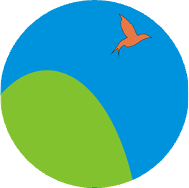Highlights:
- Appreciate with us the arrival of the Humpback whale; one of the most amazing spectacles of nature.
- Paddle in kayaks by Malaga Bay with its estuaries, natural caves and waterfalls that cascade from towering cliffs directly into the sea
Trip statistics:
- Duration of the trip: 3 days and 2 nights.
- Tours description: kayak tours of 2-4 hours and daily walks of 2 to 3 hours on the beach, cliffs and jungle
- Distance: 5 to 10 km daily approximately
- Ecosystem: tropical rainforest
- Climate: warm and humid with an average temperature of 27ºC
- Elevation: sea
- Location: Uramba Malaga Bay National Park is located in the middle portion of the Colombian Pacific coast in the town of Buenaventura, Valle del Cauca Department.
We paddle in kayaks in search of the Humpback whale, in the middle of tropical rain forest, beaches, caves, surrounded by mangrove swamps and waterfalls that fall from the cliffs directly into the sea.
Malaga Bay is considered part of the “Hot Spots” of nature conservation on a global scale. The bay is recognized worldwide as one of the target sites of seasonal migration of the Humpback whale (Megaptera novaeangliae), which migrate to its warm and calm waters to raise their calves and to mate.
Malaga Bay is one of the most biodiversity regions of the planet and contains the largest number of species of plants per square kilometer of the world and occupies the number one position in terms of diversity of species of birds and reptiles. We will be able to see sloths, alligators, dolphins, blue-legged capsules, frigate birds, pelicans, kingfishers, woodpeckers and of course the wonderful Humpback whales that visit us at this time of year.
This protected area is the result of a coordinated effort between National Parks of Colombia, as environmental authority, and the five community councils: La Plata, Ladrilleros, Juanchaco, La Barra and Puerto Espana. The bay is known for the gentle swells, which makes it ideal for any person with zero experience of kayaking or children 10 years and older. For people who do not like to ride a kayak, we have other activities such as spending time in a native canoe, whale watching by boat and trekking. But paddling a kayak and suddenly seeing a humpback 20 meters from you, crashing its tail against the water is definitely a major highlight.
Note:
The sighting of the whales is not guaranteed.
During the expedition we will be subject to natural events over which we have no control. To see the whales we depend on the behavior of them during the days we are there, they are wild animals and not every day they jump and play, sometimes they are more shy and only show their backs. We also depend on the state of the climate, the sea and the currents, for example, there have been opportunities in which we have not been able to set sail due to weather conditions (rain, fog, dangerous swell).





